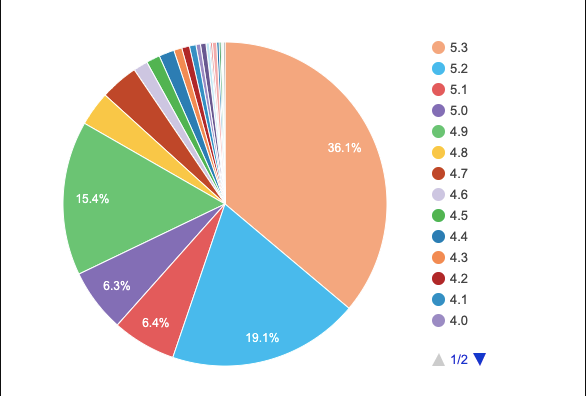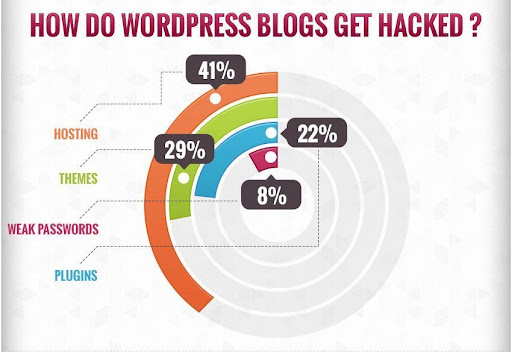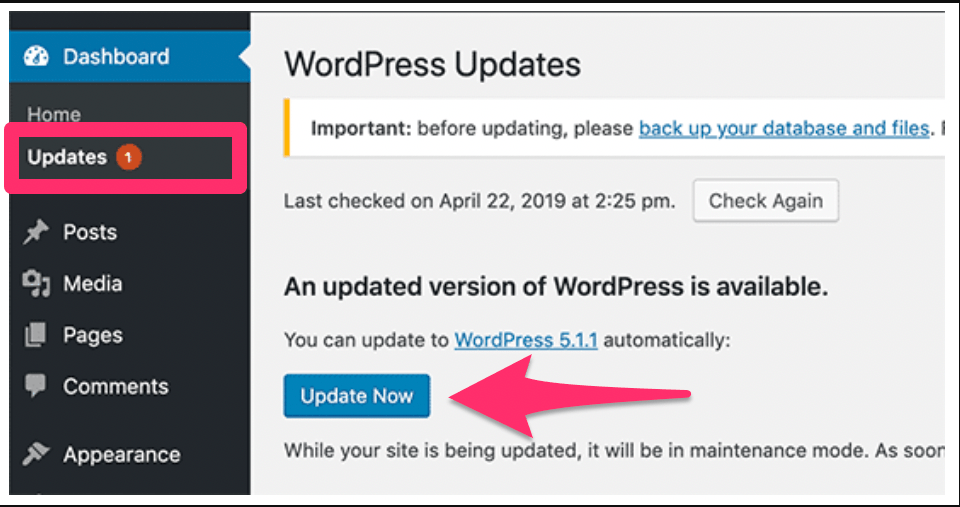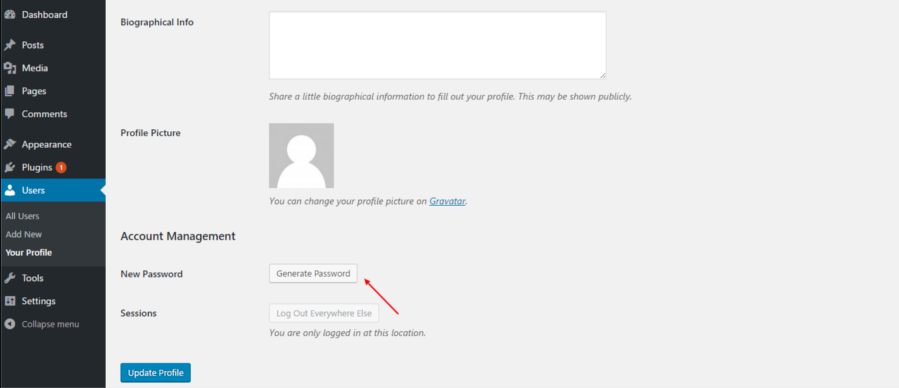WordPress proves the most common CMS used in the market worldwide. It is well-known as the simplest platform to build your sites. However, there might be times you accidentally make some common WordPress security mistakes.
As a site owner, you should avoid WordPress security mistakes to prevent hackers from creating havoc.
In this post, we’ll cover the top 7 WordPress security mistakes and some useful tips on how to avoid them.
- #1. Ignore Updating WordPress Core, Plugins, and Themes
- #2. Use Poor Quality and Nulled Add-ons, Plugins, and Themes
- #3. Keep Outdated Plugins on Your Site
- #4. Forget to Remove Admin Access of Freelance Developers
- #5. Use Weak Passwords and Not Reset Passwords Frequently
- #6. Forget to Back up Your Site Regularly
- #7. Don’t Hide Your WordPress Version
- How to Avoid WordPress Security Mistakes
#1. Ignore Updating WordPress Core, Plugins, and Themes
One of the WordPress security mistakes that many users make refers to not update WordPress core, plugins, and themes.
In February 2020, WordPress reported that only 36% of users updated the latest version.

Source: torquemag.io
WordPress usually releases new versions to not only introduce new features but also fix the vulnerabilities of the old versions. As such, ignoring updates on the latest WordPress versions equals keeping these vulnerabilities on your site.
This, unfortunately, pose a huge threat to your website security. Hackers can take advantage of these security flaws and attack your site.
Following are a few common WordPress vulnerabilities:
- SQL injections
- Cross-site scripting
- Backdoor exploits
- Phishing attacks
- Brute-force attacks
- DDoS attacks
A study conducted by Sucuri points out that among websites that got hacked, 36,7% of them have run outdated versions.
#2. Use Poor Quality and Nulled Add-ons, Plugins, and Themes

Today, many people sell nulled WordPress plugins, add-ons, or themes on unofficial sites at no cost.
As a matter of fact, nulled versions of plugins or themes can include malicious codes. This will tamper with your website and grant your site access to hackers. Once they get admin access, they will steal user data, causing data breaches.
It’s easy to avoid this kind of WordPress security mistake. All you need to do is opt for premium themes and plugins only from authorized resources. Or if you’re on a budget, you can choose good themes and plugins available for free in the WordPress repository.
#3. Keep Outdated Plugins on Your Site
As a WordPress user, you surely install a dozen of plugins to customize your site, build contact forms, landing pages, or handle other manual tasks for you.
Most developers constantly fix bugs and update their plugins. This latest update requires developers to coordinate their plugins with new WordPress releases.
However, there are also some scenarios that a lot of plugins got abandoned by their developers. That’s why you’ll see a warning of “This plugin has not been tested with the 3 latest releases of WordPress.”
At that point, if you don’t check your plugin status, there is a high chance that these plugins will cause site conflict on your site.
For this WordPress security mistake, you’d better remove these outdated plugins from your site and look for other updated ones.
#4. Forget to Remove Admin Access of Freelance Developers
There might be chances you need help from freelance developers to fix bugs or do maintenance tasks for your site. As such, you have to grant access to freelance developers in an admin role. Nothing worths mentioning if you forget to delete their admin access after they completed their jobs.
Ill-intentioned developers can take advantage of that carelessness and control your site. Even worse, some of them can leak out your customer data or your private files.
By default, WordPress offers different levels of access to your site including the administrator, editor, author, contributor, and subscriber.

All of them have different privileges on your website. It makes you easily assign certain responsibilities to each person. The admin role should be typically reserved for site owners.
#5. Use Weak Passwords and Not Reset Passwords Frequently
Using passwords that are easy to remember makes your sites vulnerable to hackers. WordPress security statistics show that it takes a hacker just less than a second to crack these weak passwords.
To prevent hackers from logging in, you need to avoid using common usernames such as “admin” or passwords like “123456”. That said, it’s crucial to set stronger passwords for your users.
More than that, hackers always attempt to break into your site to steal personal data or lock your site for ransom. That’s why your passwords need resetting on a regular basis.
#6. Forget to Back up Your Site Regularly
Not backing up your site frequently will land you trouble when your site is suffering from serious attacks or viruses.
When it comes to hacker attacks, having a backup in a safe place will help you regain access to your website easily.
If your site gets hacked and posts get deleted, the backups make it simpler to restore your site back to normal.
On top of that, a backup can stop hackers from attacking your site for a ransom. Even when they encrypt your website’s files and make them inaccessible, you can roll back your website to a state in a flash.
#7. Don’t Hide Your WordPress Version
Hackers always look for numerous ways to break into your site. Showing your version of WordPress gives hackers the ability to access your site without hassles.
Once they know what version you are using, they will attempt to access and break your site with vulnerabilities that exist in this version. That’s why you need to hide your WordPress version from other people.
How to Avoid WordPress Security Mistakes
According to WordPress vulnerability statistics 2021, there are 70,000 websites suffering from security issues.
Now, we’ll guide you through 7 tips to avoid common WordPress security mistakes.
- Update the latest WordPress version regularly

- Make a backup schedule
- Remove admin access level from other unauthorized users
- Install automated bot protection
- Download and buy premium plugins and themes from trusted resources
- Make your passwords stronger

- Remove all nulled plugins and themes
Avoid WordPress Security Mistakes All the Time
All in all, if you run your website on the WordPress platform, you must be aware of the 7 most common mistakes site owners and developers make.
We’ve also put together 7 useful tips to help you avoid WordPress security mistakes. Hence, you can protect your WordPress site from hackers and manage your website better.
Have any concerns about WordPress security mistakes? Feel free to leave your comments below.
